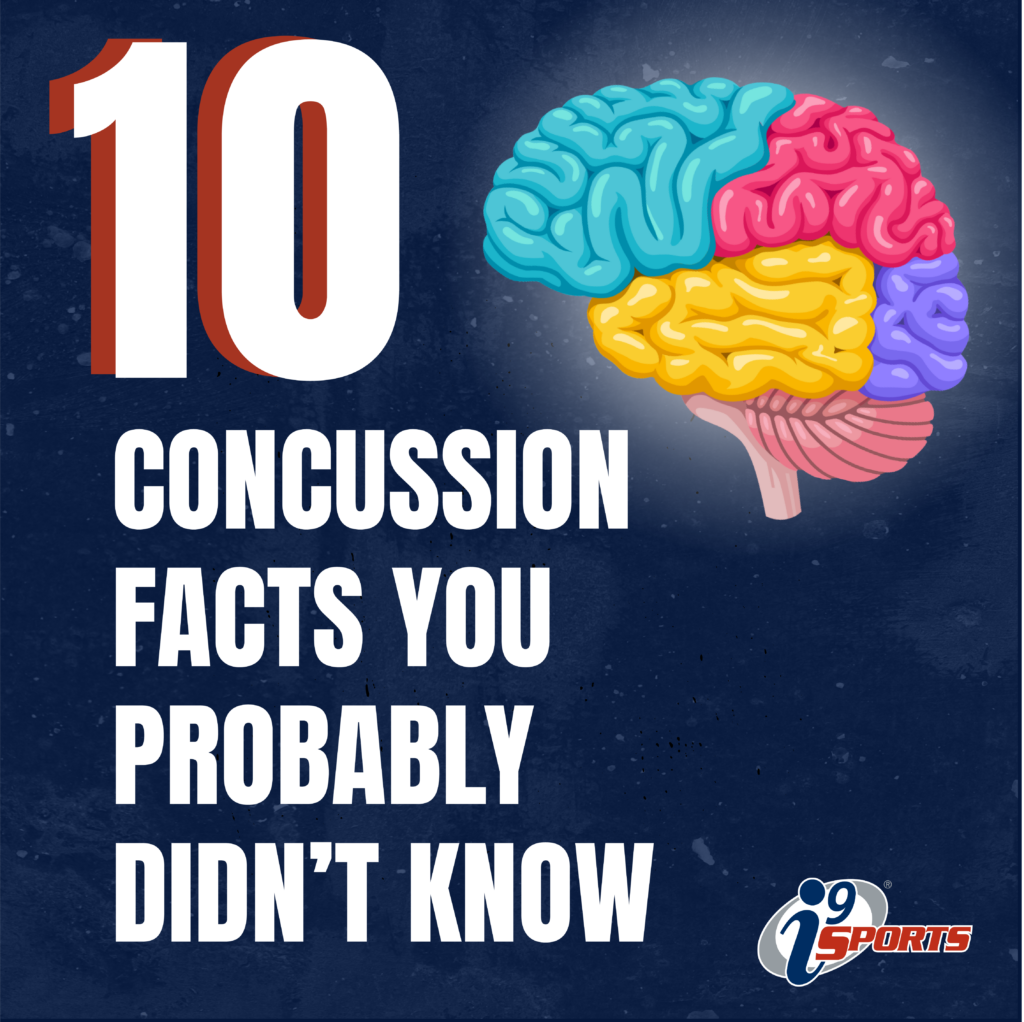10 Concussion Facts You Didn’t Know
People of all ages and activity levels are at risk for concussions. Recognizing a concussion when it happens can make a difference in how quickly an athlete can recover and get back to normal activity levels. Here are ten facts you may not know about concussions:
1. A concussion doesn’t always cause unconsciousness.
2. Concussions aren’t always obvious. Less obvious symptoms include irritability, being more emotional than usual, difficulty concentrating, confusion, clumsiness, repeating questions, and changes in sleep patterns.
3. Tackle football is responsible for around 300,000 concussions a year, making it the number one high school sport in number of concussions. Girls’ soccer sees the second most concussions, and girls’ basketball has the third most concussions. Between 1.7- 3 million sports related concussions happen every year. This is why it’s important to recognize the signs and symptoms of a concussion.
4. A person suffering from a concussion needs rest to recover. However, that does not mean sitting in front of screens all day. Screens and too much concentration can harm recovery as your brain needs the mental rest. Those with concussions should limit activities like television, texting, social media, reading, driving, doing homework, and loud noises.
5. Any concussion is a traumatic brain injury (TBI).
6. Bicycling and horseback riding are among the top recreational activities that cause concussions. This is a great reason to always wear a helmet!
7. 40% of athletes with a possible concussion said their coach was not aware they had a possible concussion.
8. Using the appropriate protective equipment and creating a safe sport culture can lower an athlete’s chance of a concussion and lower the likelihood of an athlete playing with a concussion. If an athlete feels like they can come to a coach or a parent about a possible concussion without repercussions, then they are more likely to willingly sit out until they recover. Professional sports, such as the NFL, are trying to lead by example by pushing for stricter concussion protocols. We highly recommend youth sports teams adopt a policy such as our “When In Doubt, Sit It Out” policy.
9. Symptoms can start to show up to 48 hours after a concussion and can start to disappear within 7-10 days after.
10. Fewer than 1 in 20 people will get the facts they need to recognize and recover from a concussion.
Concussions are what some would call an “invisible injury.” It’s not like a broken leg, where someone is visibly unable to walk correctly and may have a visible brace or cast on. People with concussions walk around seemingly normal, which is why it’s so easy to miss.
Don’t be part of the 1 in 20 people who don’t have the facts. Learn more about the signs and symptoms of a concussion, and know what to do if you recognize one. If you suspect you or someone you know may have a concussion, seek medical attention as soon as possible.
